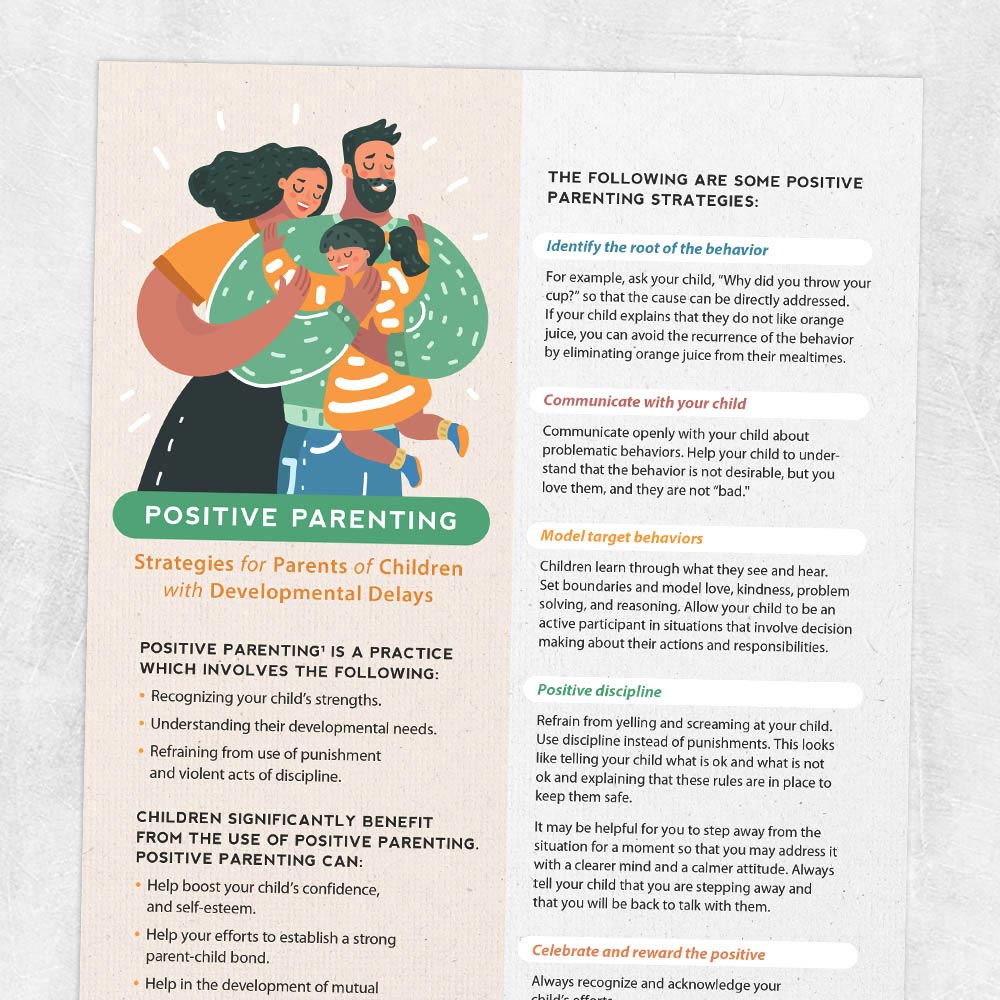Parenting strong-willed kids requires acknowledging their feelings and offering limited choices while remaining direct and clear. Acknowledge their feelings, give them some control, and help them problem-solve instead of whine.
Positive parenting techniques focus on kindness, listening, and respect, especially effective with strong-willed children. Discipline strategies include making eye contact, setting clear expectations, and remaining consistent. Raising a strong-willed child demands creative parenting to navigate challenging moments effectively. Implementing these strategies can lead to a harmonious and rewarding parent-child relationship.
By understanding and adapting to your child’s strong-willed nature, you can foster their independence while providing guidance and support.

Credit: www.amazon.com
Table of Contents
ToggleUnderstanding Strong-willed Kids
Parenting strong-willed kids can be challenging, but acknowledging their feelings, offering limited choices, and prioritizing problem-solving over whining can lead to better outcomes. It’s important to be direct, clear, and a little stubborn, while also finding reasons to praise them.
Providing a positive and understanding environment can encourage positive behaviors in strong-willed kids.
What Is Strong-willed Behavior?
Strong-willed behavior refers to a personality trait often exhibited by children who have a strong sense of independence and determination. These children tend to assert their opinions and desires firmly, often resisting authority in order to maintain control over their own actions and decisions. It’s important to note that strong-willed behavior is not necessarily negative, but rather a reflection of a child’s unique characteristics and temperament.
Common Characteristics Of Strong-willed Kids
Strong-willed children often display certain common characteristics that distinguish them from their peers. These characteristics include:
- Independence: Strong-willed kids prefer to do things on their own and may resist help or guidance from others.
- Determination: They are often highly motivated and perseverant, refusing to give up easily in the face of challenges.
- Assertiveness: Strong-willed children are not afraid to express their opinions and desires, often in a strong and direct manner.
- Resistance to authority: They may challenge rules and boundaries, questioning the reasons behind them and seeking to assert their own autonomy.
- Emotional intensity: These children often feel emotions deeply and may exhibit strong emotional reactions to situations.
Understanding these common characteristics can help parents navigate their interactions with strong-willed kids more effectively, promoting a positive and harmonious relationship in the long run.

Credit: health.ucdavis.edu
Effective Parenting Strategies
Introductory paragraph
Effective Parenting Strategies are crucial when raising strong-willed kids. By employing the following techniques, parents can establish a healthy and harmonious relationship with their children while nurturing their independence and confidence.
H3 headings in HTML syntax
Acknowledge Their Feelings
- Let children know that their emotions are valid.
- Show empathy and understanding towards their concerns.
Give Them Some Control
- Empower children by allowing them to make decisions within boundaries.
- Encourage independence and autonomy.
Offer Limited Choices
- Present options to children to make them feel involved in decision-making.
- Limit choices to avoid overwhelming them.
Be Direct, Clear, And Stubborn
- Communicate expectations and boundaries clearly.
- Stay firm in enforcing rules while remaining consistent.
Help Them Problem-solve
- Guide children in finding solutions to challenges they encounter.
- Encourage critical thinking and independence in resolving issues.
Find Reasons To Praise Them
- Recognize and appreciate the positive qualities and behaviors of children.
- Offer genuine compliments to boost their self-esteem and confidence.
Positive Parenting Techniques
Positive parenting focuses on using kindness, listening to children, and talking to them in a way that makes them feel loved and respected. This can be a very effective approach for strong-willed children, in particular, because it respects their independence.
Using Kindness And Listening
- Acknowledge their feelings.
- Give them some control.
- Offer (limited) choices.
- Be direct, clear, and a little stubborn.
- Help them problem-solve instead of whine.
- Find reasons to praise them.
Talking To Them With Love And Respect
- Make eye contact.
- Never ask something more than twice.
- Pick your battles.
- Know your child’s triggers.
- Practice prevention.
- Be consistent.
- Don’t get emotional.
- Listen and repeat.
Respecting Their Independence
It is essential to let strong-willed kids make decisions on their own as much as possible, as it nurtures their autonomy and helps them develop essential decision-making skills.
Disciplining A Strong-willed Child
Parenting a strong-willed child can be both rewarding and challenging. One of the most crucial aspects of raising a strong-willed child is ensuring they understand discipline. Here are some effective strategies for disciplining a strong-willed child:
Make Eye Contact
When addressing your strong-willed child, ensure you make direct eye contact to convey the gravity of the situation. This demonstrates that you are fully present and focused on their behavior.
Never Ask More Than Twice
Set clear boundaries and avoid repeating yourself more than twice. This teaches your child to listen and respond to your directives without disregarding them.
Pick Your Battles
Choose the issues that truly require intervention. By selectively addressing specific behaviors, you avoid unnecessary power struggles and focus on the most important areas of discipline.
Identify Triggers
Understanding the situations or stimuli that trigger challenging behaviors allows you to proactively manage and minimize potential conflicts.
Practice Prevention
Implement strategies to prevent situations that may lead to defiance or resistance. This can help maintain a more harmonious environment.
Be Consistent
Consistency in enforcing rules and consequences is vital in disciplining a strong-willed child. Consistent responses help them understand the reliability of expected outcomes.
Don’t Get Emotional
Emotional reactions can escalate confrontations with a strong-willed child. Remaining calm and composed in disciplinary situations is essential to effectively manage their behavior.
Listen And Repeat
Listening attentively to your child’s concerns and repeating the rules or instructions ensures that they understand and acknowledge your expectations.
Navigating Hard Moments
Parenting strong-willed children can be challenging. Acknowledge their feelings, offer choices, and encourage problem-solving to navigate tough moments effectively. Helping them feel in control and praising their efforts can foster a positive relationship.
Choose Your Battles
In parenting strong-willed kids, prioritize important issues.
Have Clear Expectations
Set straightforward guidelines and boundaries for your child.
Give Autonomy
Empower your child by allowing them to make decisions within limits.
In challenging moments with strong-willed kids, maintaining composure and patience is key. Acknowledge their feelings and provide them with limited choices to foster independence. Remember to be clear and firm in your communication, and encourage problem-solving rather than complaining. Praising them for positive behavior can reinforce good habits. When disciplining, it’s crucial to establish eye contact, be consistent, and understand your child’s triggers, ensuring a constructive approach to managing behavior.
Understanding The Benefits Of Strong-willed Kids
Having a strong-willed child may seem challenging at times, but it’s important to recognize the many benefits that come with their determined and independent nature. Understanding these benefits can help parents navigate their child’s strong personality with more empathy and patience.
Determination And Perseverance
Strong-willed kids have a natural drive and determination to accomplish their goals. They possess an unwavering sense of perseverance that can set them up for success in various aspects of life. Whether it’s in academics, sports, or extracurricular activities, their determination allows them to overcome obstacles and work hard to achieve their desired outcomes.
Independent Thinkers And Leaders
Strong-willed kids are often independent thinkers and natural leaders. They have a unique ability to see things from multiple perspectives and are not afraid to voice their opinions. This makes them valuable contributors to group discussions and decision-making processes, as they offer fresh ideas and solutions.
By encouraging and nurturing their independent thinking skills, parents can help these children develop into future leaders who are unafraid to stand up for what they believe in and make a positive impact on the world.
It’s important for parents to foster an environment that allows their strong-willed child to explore and express their ideas freely. Providing opportunities for them to take the lead and make decisions can boost their confidence and further enhance their leadership skills.
In conclusion, strong-willed kids possess qualities that can benefit them greatly in life. Their determination and perseverance can lead to remarkable achievements, while their independent thinking skills and leadership abilities can shape them into future leaders. By understanding and embracing these benefits, parents can support and guide their strong-willed children towards a bright and successful future.
Seeking Support
Seeking support? Parenting strong-willed kids can be challenging, but there are effective tips to help you navigate these moments. Acknowledge their feelings, offer limited choices, and help them problem-solve instead of whining. Be direct, clear, and stubborn, and find reasons to praise them.
Online Resources And Advice
If you’re seeking support for parenting strong-willed kids, there are numerous online resources and advice available to help guide you through this journey. Online websites and blogs dedicated to parenting strong-willed children offer valuable insights, tips, and strategies that can make a significant difference in your parenting approach. Some of the reputable online resources for parenting strong-willed kids include:
- Little Sunshine: This website offers a comprehensive guide on how to parent strong-willed children, emphasizing the importance of acknowledging their feelings, giving them some control, offering limited choices, and problem-solving instead of whining.
- Focus on the Family: Their YouTube channel provides a video series on understanding strong-willed children, addressing common misconceptions, and offering practical advice on how to handle their behavior effectively.
- MomDoc: This website shares valuable tips and insights specifically tailored to parenting strong-willed children. From understanding their behavior to managing discipline, their articles cover various aspects of raising these determined kids.
Support Groups And Forums
In addition to online resources, joining support groups and forums can be immensely beneficial when raising strong-willed kids. Connecting with other parents who are going through similar experiences can provide a sense of understanding, validation, and practical advice. Whether it’s in-person support groups or virtual forums, here are a few places where you can seek support:
- Local parenting support groups: Check with your local community centers, libraries, or parenting organizations for support groups specifically catering to parents of strong-willed children. These groups often provide a safe space to share experiences, learn from others, and exchange strategies.
- Online parenting forums: There are several online platforms where parents can connect, share their stories, and seek advice. Websites like Parenting.com and BabyCenter have active forums where you can join discussions, ask questions, and benefit from the collective wisdom of other parents.
- Social media groups and communities: Social media platforms like Facebook also host dedicated groups for parents of strong-willed children. These groups offer a convenient way to connect with others, exchange tips, and find support whenever you need it.
Remember, seeking support is crucial when parenting strong-willed kids. Online resources, advice, support groups, and forums can provide valuable insights, guidance, and a sense of camaraderie that can strengthen your parenting skills and make the journey more manageable.

Credit: therapyinsights.com
Frequently Asked Questions For Tips Parent Strong Willed Kids
How Do You Parent An Extremely Strong-willed Child?
Parenting an extremely strong-willed child can be challenging. Here are some tips: 1. Acknowledge their feelings. 2. Give them some control. 3. Offer limited choices. 4. Be direct, clear, and stubborn. 5. Help them problem-solve instead of whine. 6. Find reasons to praise them.
Does Gentle Parenting Work With Strong-willed Child?
Gentle parenting can be effective for strong-willed children as it focuses on kindness and respect.
How Do You Discipline A Child That Won’t Listen?
To discipline a child that won’t listen, try these tips: Make eye contact and speak directly. Don’t ask more than twice. Choose battles wisely and understand triggers. Practice prevention. Stay consistent and avoid getting emotional. Listen and repeat instructions.
What Age Is Hardest To Parent?
The hardest age to parent is typically the toddler stage, around 2 to 3 years old. Tantrums, defiance, and newfound independence can make this age challenging.
Conclusion
Parenting strong-willed kids requires patience, empathy, and clear communication. Acknowledge their feelings and offer choices to empower them. Focus on positive reinforcement and problem-solving to guide their behavior effectively. Understanding and respecting their independence is key to raising confident and resilient individuals.
Embrace the challenge with love and consistency.

Mother of Two children. I’m a former teacher with a background in child development and a passion for Good parenting. I understand child development and know how to develop activities to help children learn and grow. Spare time, I enjoy spending time with my family, reading, and volunteering in my community. Read More








